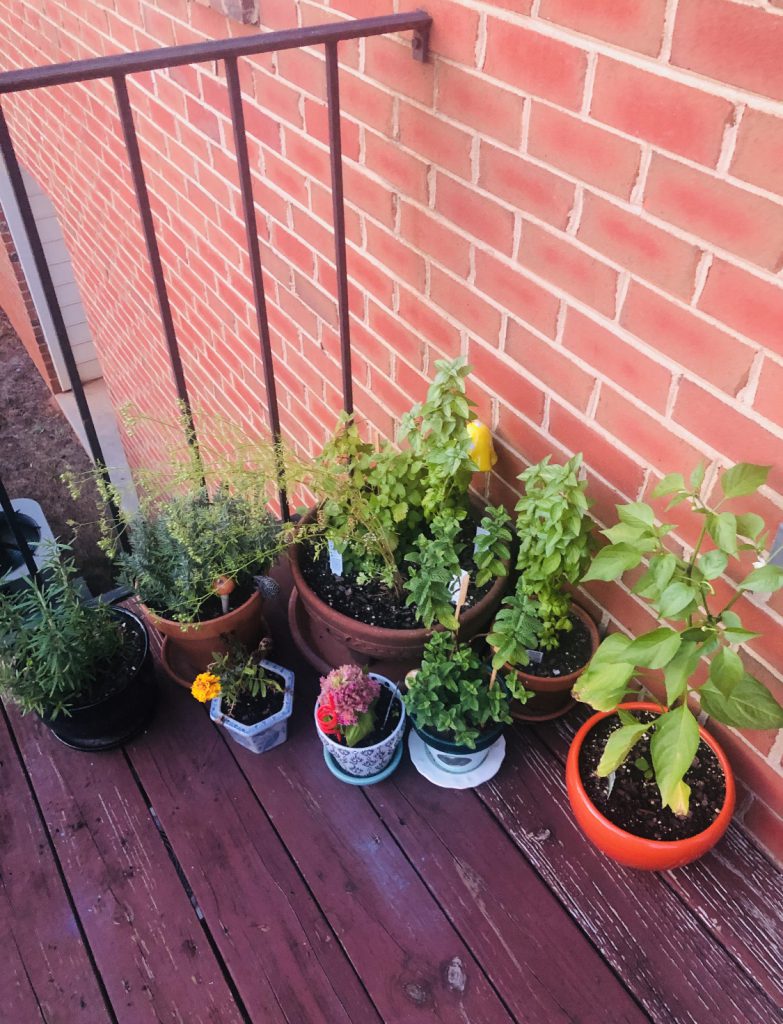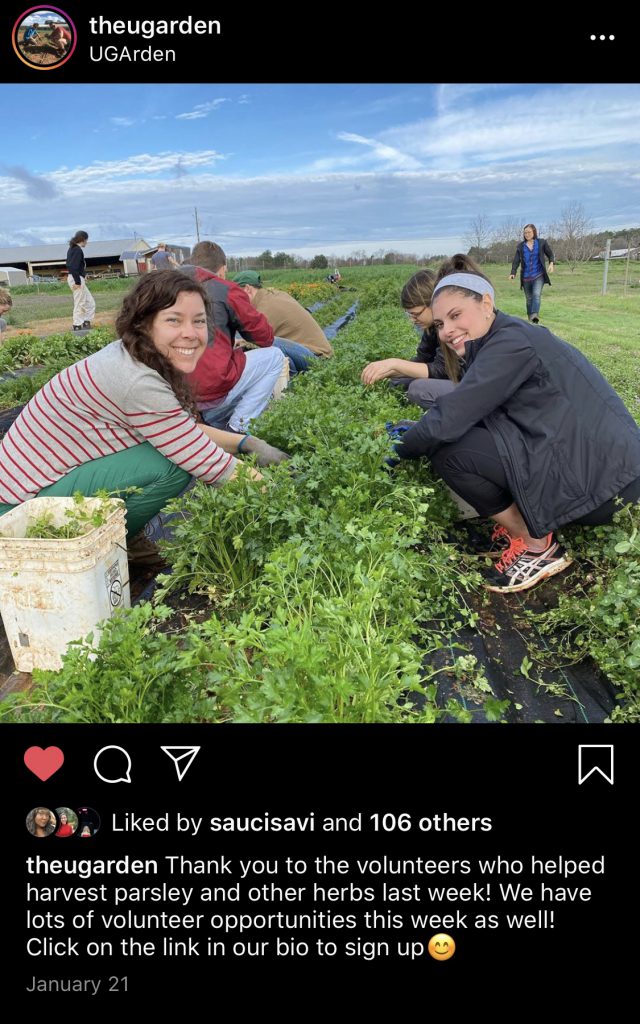I took HORT 3300E (Organic Gardening) during the spring semester of 2020, and it was one of my favorite online classes so far. It was full of practical information that I could someday use in my own garden (in fact, I used some of what I learned with my potted herb garden on my apartment balcony), and I was able to do not just online activities, but hands-on activities, as well. One of these hands-on activities was when I had to volunteer with UGArden to fulfill a requirement for the class.

I took HORT 3300E (Organic Gardening) during the spring semester of 2020, and it was one of my favorite online classes so far. It was full of practical information that I could someday use in my own garden (in fact, I used some of what I learned with my potted herb garden on my apartment balcony), and I was able to do not just online activities, but hands-on activities, as well. One of these hands-on activities was when I had to volunteer with UGArden to fulfill a requirement for the class.
UGArden is a club at UGA in which students and employees manage a small area of gardens that produce various herbs, plants and vegetables. This was by far my favorite part of the class, because it allowed me to get connected with the earth and to meet a lot of cool people while volunteering.
When I arrived at UGArden on a sunny, crisp morning in March, I had no idea what I was getting into. I walked around the shed area, where I examined a lot of interesting tools, until the shift leader gathered me and the other wanderers together and told us what to do. We were tasked with de-weeding the medicinal herb garden patch.
We spent the next few hours on our knees in the dirt, just pulling out weeds and talking about whatever came to mind. It was a lot of fun! And it smelt amazing, as the smell of fresh soil lingered in the air and there were a lot of various herbs giving off beautiful aromas (like basil, lemon grass, rosemary, mint, hibiscus, etc.). I felt so connected to growth, because by weeding the herb patches, we were allowing the herbs to obtain more nutrients and water. These herbs would eventually be harvested and dried to make teas and other medicinal products. It was so satisfying to be part of that process, and it felt so natural (because the products are made sustainably, with very little processing and no artificial ingredients).
One lady that was volunteering while I was there is named Christy Tweedy- she had been my supervisor when I was an eco-rep for East Campus Community Village. We are good friends, and she knows so much about the natural earth. While we picked weeds next to each other, she told me about chickweed, the stuff we were pulling out of the ground. She said it’s edible, and then she ate some! I tried some, too, and it was… actually pretty good.

With all that being said, taking this class and volunteering with UGArden really inspired me to attempt growing my own herbs and vegetables someday. I really enjoyed the experience of being so close to the earth and doing something productive at the same time. I also enjoyed talking with the people around me while being productive. Plus, I got to step out of my comfort zone and eat a weed for the first time!
Overall, this class made me realize that the best way to be inspired and motivated to get involved is to try new things and meet new people. It’s almost like something new grew inside of me while I was picking weeds- a sense of direction, passion, peace. I also realized that getting a little dirty and really existing in nature is the most effective way to empathize with it and to value it. I feel as though every school (mainly elementary schools) should have gardens and classes that teach children how to work in the gardens, because in the long run, that could have extremely significant effects on how our future generations value the earth and all the beautiful things it has to offer (like edible weeds).
Below is a link to a poster project I did for the class (it’s about the effectiveness of sunflowers as attractors of beneficial insects and pests in gardens):
